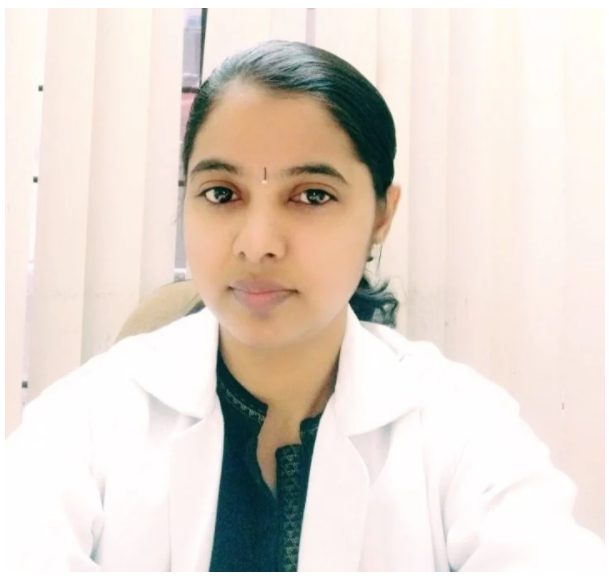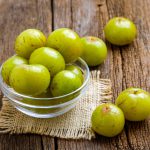Ashwagandha in Sanskrit means “smell of the horse” to correlate it with the strength of…
Read MoreMost of us have experienced skin irritations at some point or the other. When the irritation is due to an allergen triggering a response from your immune system it’s called an allergic skin reaction. Let’s understand how these develop and take a look at some ayurvedic treatments that can be helpful in dealing with them.
Urticaria which is also known as hives, nettle rash, welts, or weals is an itchy, raised rash which appears on your skin. Medically, it’s known as ‘acute urticaria’ if it clears in six weeks. In rare cases, the rash may persist or come and go for a period longer than 6 weeks. This is medically known as ‘chronic urticaria‘.
In ayurveda, shitapitta, udarda and kotha are conditions that can be considered similar to urticaria. These terms are usually used as synonyms as they’re predominantly characterized by the presence of itchy, red rashes. Various conditions like asatmya (that which is not suitable for the body is considered asatmya or unwholesome), virudhahara (incompatible diet) and dushivisha (poisons which accumulate in the body) are thought to cause these conditions. However, some differentiation can be made between them:
The following symptoms in the acute stage or when they become chronic:
Hives develop when something causes the release of high levels of histamine and other chemicals in your skin. These chemicals cause the opening up of blood vessels in the part of the skin that’s affected. This often causes reddening of skin. The blood vessels also become leaky leading to extra fluid in your tissues which results in itchiness and swelling.
Histamine is a chemical that’s naturally available in our bodies. It’s responsible for various symptoms that we associate with allergic reactions. If you are allergic to something then your immune system mistakes the allergen to be a harmful substance causing histamine to be released into your bloodstream. Histamine can act not just on your skin but also your nose, eyes, throat, gastrointestinal tract, or lungs to cause allergy symptoms.[2][Definition: Histamine](https://kidshealth.org/en/parents/histamine.html “Definition: Histamine”). The Nemours Foundation.
In many cases the trigger for hives (urticaria) may be unknown. Some triggers for acute urticaria include:
Chronic hives may develop due to an autoimmune reaction. This is when your immune system attacks your tissues by mistake- around 33 to 50% chronic urticaria cases are considered to be autoimmune related. Autoimmune urticaria can sometimes be seen along with other autoimmune conditions like lupus, or rheumatoid arthritis. It is also linked to other diseases and infections such as viral hepatitis, intestinal parasites, hyperthyroidism, and hypothyroidism. Triggers can include:
Around 25% of people with acute urticaria and 50% of people suffering from chronic urticaria develop angioedema. This is a more severe condition which is caused by a build-up of fluid. It is characterized by swelling in the deeper layers of your skin. It typically affects the eyes, genitals, lips, feet, and hands. It can be caused by:
Hives can be an initial symptom for a severe allergic reaction known as anaphylaxis. Other symptoms for this condition include:
Anaphylaxis is a medical emergency that requires immediate attention.[5][Urticaria (hives)](https://www.nhsinform.scot/illnesses-and-conditions/skin-hair-and-nails/urticaria-hives “Urticaria (hives)”).NHS.
In some cases, your doctor may recommend medicines such as antihistamines or a menthol cream to deal with urticaria. Avoiding triggers and managing your stress levels can also be helpful.[6][Treating urticaria (hives)](https://www.nhsinform.scot/illnesses-and-conditions/skin-hair-and-nails/urticaria-hives#treating-urticaria-hives “Treating urticaria (hives)”).NHS. Ayurveda also offers many remedies for treating urticaria. However, do keep in mind that as remedies can vary based on individual characteristics, you should check in with an ayurvedic doctor who will be able to guide you regarding the appropriate course of treatment.
Here’s a look at some common ayurvedic remedies for this condition:
i. Abhyanga
Abhyanga is a medicated oil massage. Your ayurvedic doctor might recommend an oil massage to deal with urticaria. This can include massage with substances such as:
ii. Application Of Herbal Remedies
Various herbal formulations can be locally applied on the affected area for relief. For instance,
iii. Internal Medications
Dermatitis is an inflammation of the skin which causes a scaly, reddish, itchy rash. Two of the most common kinds of dermatitis are contact dermatitis and atopic dermatitis (often called eczema).
This is a chronic condition which often begins in early childhood or infancy.
The exact cause of this condition is not known. A combination of factors may play a part in its development. It often develops in people who suffer from allergies. In fact, the word “atopic” means being sensitive to allergens. It may have a genetic component and often occurs with other conditions like hay fever and asthma. Some triggers include:
Contact dermatitis is a rash caused when your skin comes into contact with certain substances. It’s of two kinds: allergic and irritant.
In ayurveda, eczema correlates as “vicharchika”. It is considered to be a kshudra kushta or minor skin disease. This condition is considered to be rakta pradoshaja, that is, blood tissue is contaminated when this condition develops. An imbalance in all the three doshas – vata, pitta, and kapha – is indicated in vicharchika though with the dominance of kapha.[11]Kaur, Mandip, and H. M. Chandola. “Role of Rasayana in cure and prevention of recurrence of Vicharchika (Eczema).” Ayu 31, no. 1 (2010): 33.
Your doctor may recommend anti-inflammatory creams, topical corticosteroids, emollients or antihistamines to deal with eczema. If you have contact dermatitis compresses and cold soaks may relieve your rash. Topical corticosteroid creams may also be prescribed in some cases. Avoiding contact with the substance causing contact dermatitis (for instance, by wearing gloves) is important.[12][Allergic Skin Conditions](https://www.aaaai.org/Tools-for-the-Public/Conditions-Library/Allergies/Allergic-Skin-Conditions “Allergic Skin Conditions”). American Academy of Allergy Asthma and … Continue reading Ayurvedic treatment can also be helpful in dealing with dermatitis. However, do keep in mind that as remedies can vary based on individual characteristics, you should check in with an ayurvedic doctor who will be able to guide you regarding the appropriate course of treatment. The treatment can consist of various remedies such as
The oral administration of medicines which promote digestion and improve the metabolic activity of cells is considered useful in Ayurveda. These medicinal formulations are also considered to be helpful in breaking down ama (toxins). Panchakola phanta is an example of an ayurvedic drug used for this purpose.
Snehapana is the process of drinking medicated ghee. Administration of medicated ghee is thought to help remove toxins from the body.
Sarvang abhyanga or whole body oil massage is thought to bring toxins from all over the body to the excretory channels. This process is usually carried out after snehapana.
Bashpa swedana or sudation therapy involves the elimination of toxins and waste from the body through the process of sweating. This is usually done immediately after an oil massage in a steam room.[13]Hegde, Pallavi, D. T. Hemanth, S. V. Emmi, M. P. Shilpa, Pradeep S. Shindhe, and Y. M. Santosh. “A case discussion on eczema.” International journal of Ayurveda research 1, no. 4 (2010): … Continue reading
Guduchi (Tinospora cardifolia) and Bhringaraja (Eclipta alba) in equal quantities along with ghee twice a day is thought to be helpful in treating eczema. Do keep in mind though that in Ayurveda these rasayana medicines are administered as part of a treatment plan which includes other aspects like koshta shuddhi (cleansing of the bowels using oral herbal formulations), and application of medicinal lepa (paste) on lesions etc.[14]Kaur, Mandip, and H. M. Chandola. “Role of Rasayana in cure and prevention of recurrence of Vicharchika (Eczema).” Ayu 31, no. 1 (2010): 33.
References
| ↑1, ↑7 | Maurya, SANTOSH KUMAR, and A. N. K. I. T. Seth. “Potential medicinal plants and traditional ayurvedic approach towards urticaria, An allergic skin disorder.” Int J Pharm Pharm Sci 6, no. 5 (2014): 172-7. |
|---|---|
| ↑2 | [Definition: Histamine](https://kidshealth.org/en/parents/histamine.html “Definition: Histamine”). The Nemours Foundation. |
| ↑3 | [Causes of urticaria (hives)](https://www.nhsinform.scot/illnesses-and-conditions/skin-hair-and-nails/urticaria-hives#causes-of-urticaria-hives “Causes of urticaria (hives)”).NHS. |
| ↑4 | [Angioedema](https://www.nhs.uk/conditions/angioedema/ “Angioedema”).NHS,UK. |
| ↑5 | [Urticaria (hives)](https://www.nhsinform.scot/illnesses-and-conditions/skin-hair-and-nails/urticaria-hives “Urticaria (hives)”).NHS. |
| ↑6 | [Treating urticaria (hives)](https://www.nhsinform.scot/illnesses-and-conditions/skin-hair-and-nails/urticaria-hives#treating-urticaria-hives “Treating urticaria (hives)”).NHS. |
| ↑8, ↑10, ↑12 | [Allergic Skin Conditions](https://www.aaaai.org/Tools-for-the-Public/Conditions-Library/Allergies/Allergic-Skin-Conditions “Allergic Skin Conditions”). American Academy of Allergy Asthma and Immunology. |
| ↑9 | [Atopic eczema](https://www.nhs.uk/conditions/atopic-eczema/ “Atopic eczema”).NHS. |
| ↑11, ↑14 | Kaur, Mandip, and H. M. Chandola. “Role of Rasayana in cure and prevention of recurrence of Vicharchika (Eczema).” Ayu 31, no. 1 (2010): 33. |
| ↑13 | Hegde, Pallavi, D. T. Hemanth, S. V. Emmi, M. P. Shilpa, Pradeep S. Shindhe, and Y. M. Santosh. “A case discussion on eczema.” International journal of Ayurveda research 1, no. 4 (2010): 268. |


Dr. Manjula has 12 years of experience in the field of Ayurveda and worked as a Consultant and General Physician for over 5 years before starting her private practice. In addition to BAMS, she also has an Advanced Diploma in Clinical Research and is trained in Panchkarma. She is an expert at diagnosis of the root cause and planning effective treatment for multiple issues.

Ashwagandha in Sanskrit means “smell of the horse” to correlate it with the strength of…
Read More
Pimples - we’ve all had them and we all hate them. And if you’ve ever…
Read More
Don’t all of us want healthy glowing skin? And while there is a ton of…
Read More
Healthy, radiant, youthful skin is something that we all desire. However, we might unwittingly have…
Read More